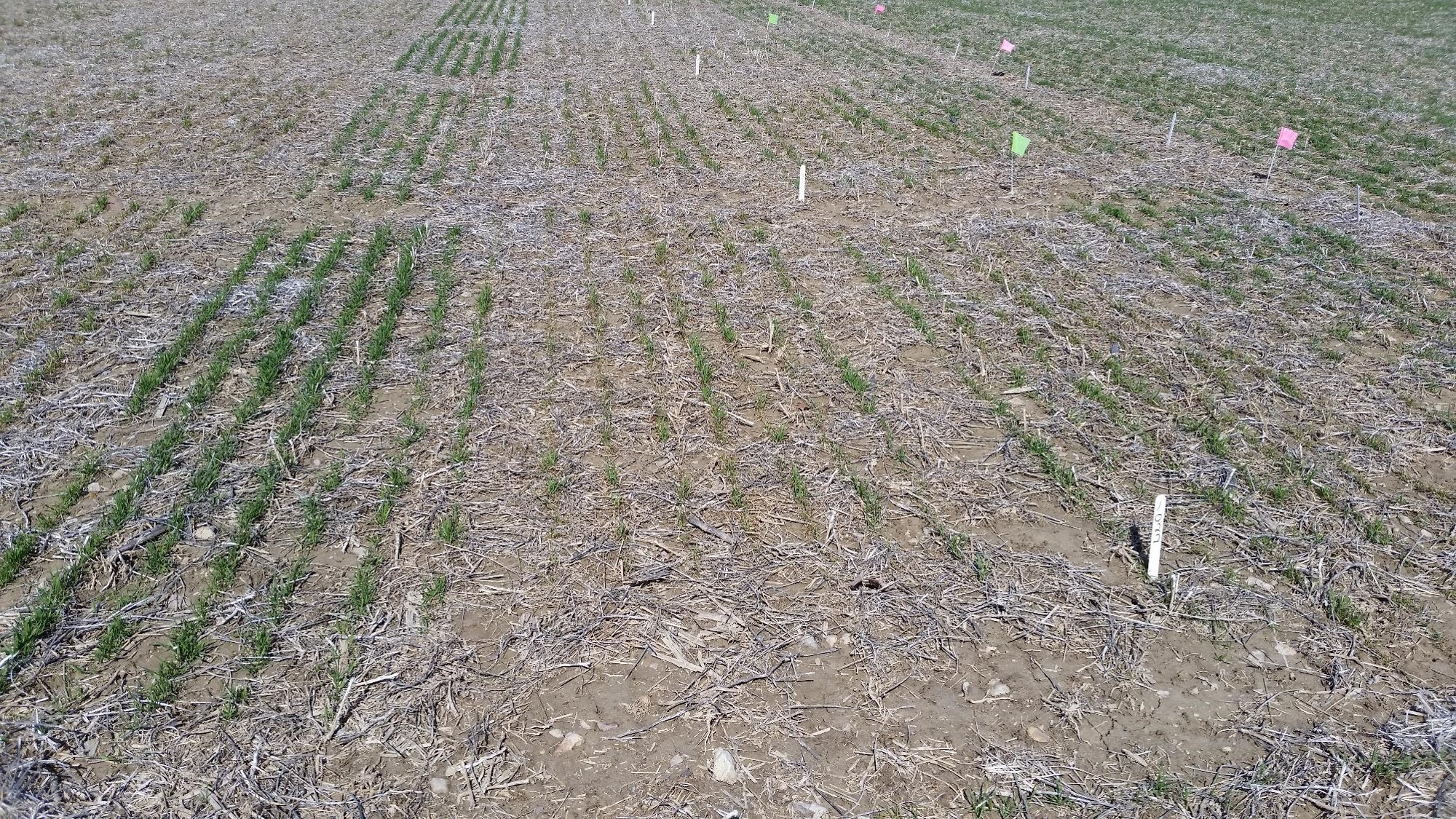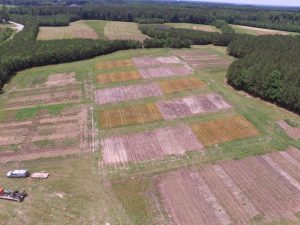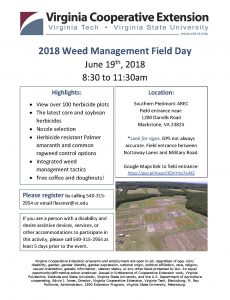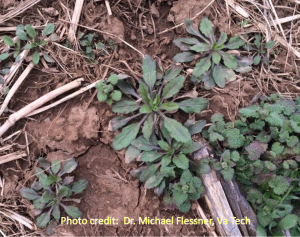The herbicide TriCor, a metribuzin product from United Phosphorus Inc., has received 24(c) registration (special local needs) for use in Virginia for control of Harmony and Harmony Extra (group 2 herbicides) resistant common chickweed. The supplemental label is here: TriCor DF Herbicide 24(c) VA label. This is good news for small grains growers.
Research by Drs. Scott Hagood and Michael Flessner indicate that TriCor at 2 oz/a results in excellent common chickweed control when applied in fall or spring, with no significant injury to wheat. However, wheat injury can be a concern. Using crop oil concentrate or vegetable oil surfactants with TriCor increases the risk of crop injury, as well as when applying with fertilizer in combination with TriCor. Growers should select wheat and barley varieties that are tolerant of metribuzin if planning on using TriCor as certain varieties are more sensitive to metribuzin than others. Seed dealers may have information regarding metribuzin tolerance. Additionally, preliminary nonreplicated wheat variety sensitivity research by Drs. Wade Thomason, Carl Griffey, and Michael Flessner is included in this publication: https://pubs.ext.vt.edu/CSES/CSES-129/CSES-129-PDF.pdf. See pages 99 to 101.
Always make sure to read and follow the product label. Also note that TriCor is the only stand-alone metribuzin product legal for this use.

Example of wheat variety differences in sensitivity to metribuzin. Thomason 2015.






